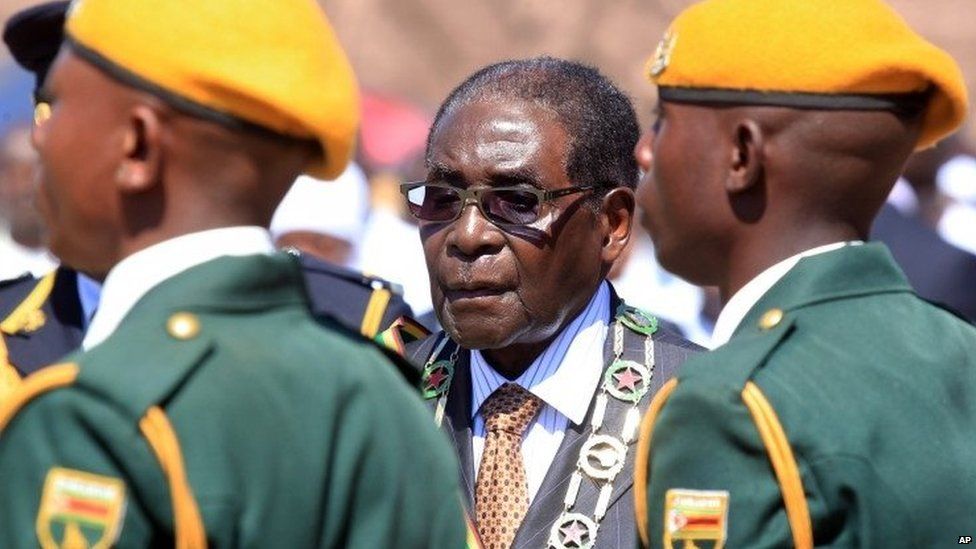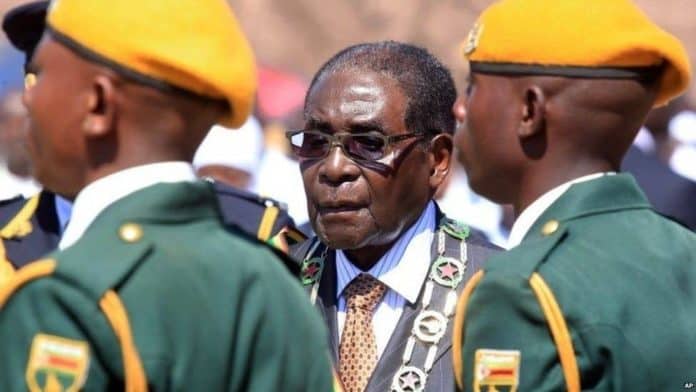-
13 August 2015
- From the section Africa

The UK’s Natural History Museum has said it may hold Zimbabwean human remains in its collection.
However, it could not confirm whether they were the “skulls of beheaded heroes” which President Robert Mugabe referred to earlier this week.
Zimbabwe’s leader had demanded the return of those killed by the British in the late 1890s during the first uprising against colonial rule.
He made the remarks at the shrine to remember the country’s war dead.
“We are told that skulls of our people, our leaders, are being displayed in a British museum and they are inviting us to repatriate them,” he said.
“We will repatriate them, but with bitterness, questioning the rationale behind decapitating them.”
Known as the heroes of the “first Chimurenga”, they were defeated by the British after a protracted battle and the ringleaders were tried and hanged.
What happened to their bodies has always remained a mystery.
Zimbabwe’s liberation struggle:
- “Chimurenga” roughly translates in Shona as “revolutionary struggle”
- The “First Chimurenga” refers to the 1896-1897 uprising against British colonialists
- The “Second Chimurenga” refers to the liberation war against Rhodesian white-minority rule which led to independence in 1980
The UK Foreign Office has now confirmed that talks have been going on since December 2014 over the “potential repatriation of Zimbabwean human remains”.
It said technical experts from Zimbabwe have been invited to meet their museum counterparts in London.
“We await the appointment of the required Zimbabwean experts in order to take this forward,” the statement said.
But the BBC’s Africa correspondent Alastair Leithead says it is not clear if the remains are of the rebellion leaders.
The Natural History Museum, which has a collection of 20,000 human remains, said it “actively engages in discussions with governments and communities” over requests for the return of human remains.
More from the BBC’s Alastair Leithead on Zimbabwe:


